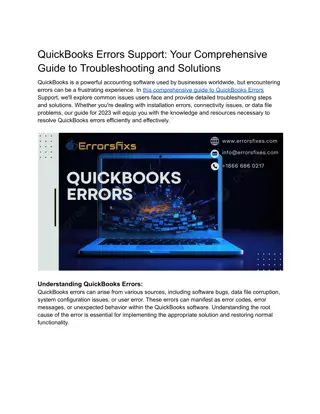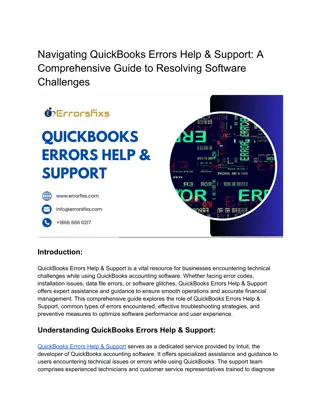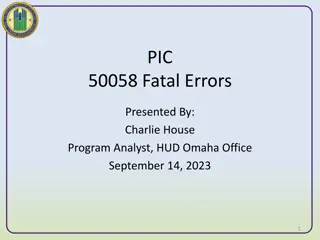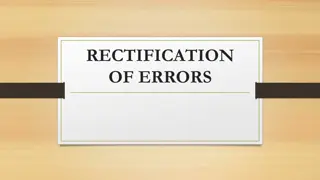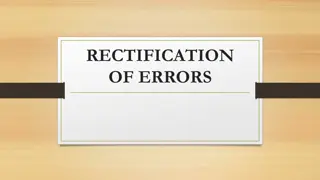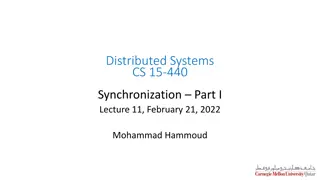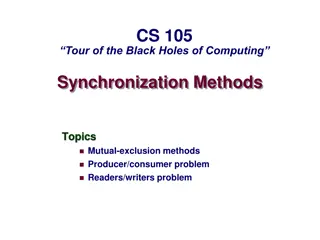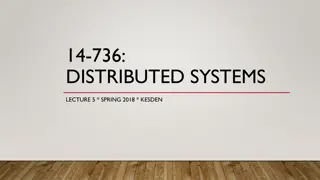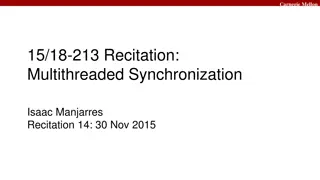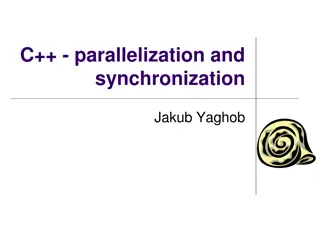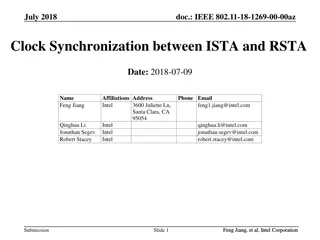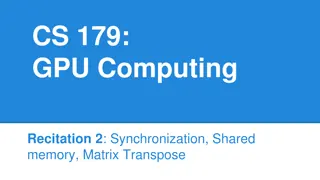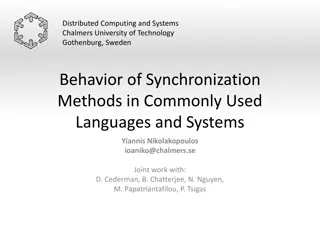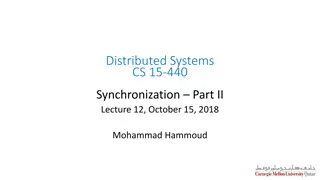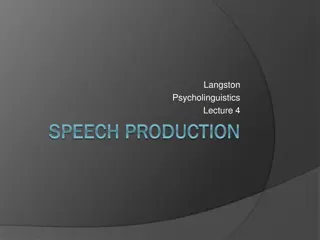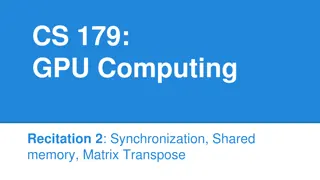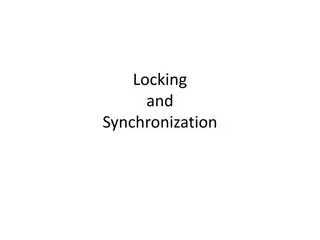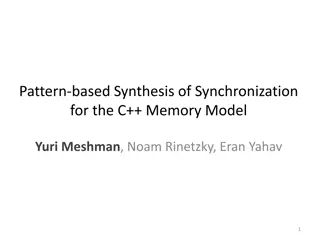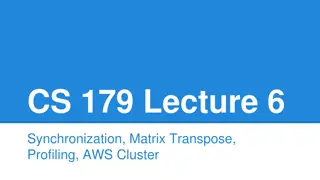Federal Employees Retirement System Errors Overview
Federal Employees Retirement System (FERS) encompasses various retirement plans with different contribution rates for federal employees. Recent discoveries of coding errors have led to a department-wide review to identify and rectify potential errors affecting thousands of employees. The errors rang
0 views • 14 slides
Understanding Errors in Quality Control Training
Explore the difference between systematic and random errors in labs, focusing on accuracy and precision. Learn about types of systematic errors such as shifts and trends, their causes, and how they affect the reliability of test systems. Discover the impact of random errors on precision and variabil
2 views • 13 slides
QuickBooks Errors Support
Navigating QuickBooks errors can be daunting, but with our expert support, you can conquer any challenge. Our comprehensive guide offers step-by-step solutions to resolve common QuickBooks errors efficiently, ensuring uninterrupted access to your financial data. Whether you're facing unrecoverable e
2 views • 3 slides
Navigating QuickBooks Errors Help & Support_ A Comprehensive Guide to Resolving Software Challenges
If you're experiencing any issues with QuickBooks, we're here to help. Our team of experts offers comprehensive support services to help you resolve any errors you may encounter, from common installation or update problems to more complex issues that can affect data integrity. With years of experien
8 views • 4 slides
Importance of Correcting PIC Errors in HUD Form 50058 Submissions
Submission errors in HUD Form 50058 to PIC can lead to various consequences, including the need for corrections within a specific timeframe, monitoring PHA performance, analyzing programs, and preventing fraud. Timely identification and correction of errors are crucial to avoid complications and ens
0 views • 19 slides
Understanding Errors in Pharmaceutical Analysis
This article explores different types of errors in pharmaceutical analysis, such as determinate and indeterminate errors, and discusses their impact on analysis results. It also covers the concepts of accuracy, precision, and minimizing systematic errors in analytical chemistry. The importance of id
1 views • 37 slides
Understanding Exceptions in Computer Science
Errors in programming, such as syntax, semantic, runtime, and logical errors, can disrupt the execution of a program. Syntax errors relate to grammatical violations, semantic errors occur when statements lack meaning, and runtime errors happen during program execution due to illegal operations. By i
1 views • 35 slides
Understanding Rectification of Errors in Accounting
Preparation of trial balance is essential for verifying the accuracy of accounting records, but it is not a conclusive proof of correctness. Rectification of errors is crucial for ensuring the true and fair presentation of a business's financial position. Types of errors include errors of omission,
0 views • 14 slides
Understanding Numerical Methods and Errors in Computation
Delve into the world of numerical methods through the guidance of Dr. M. Mohamed Surputheen. Explore topics such as solving algebraic and transcendental equations, simultaneous linear algebraic equations, interpolation, numerical integration, and solving ordinary differential equations. Learn about
0 views • 130 slides
IEEE 802.11-23/1980r1 Coordinated AP-assisted Medium Synchronization Recovery
This document from December 2023 discusses medium synchronization recovery leveraging multi-AP coordination for multi-link devices. It covers features such as Multi-link device (MLD), Multi-link operation (MLO), and Ultra High Reliability (UHR) capability defined in P802.11bn for improvements in rat
0 views • 8 slides
Understanding Medication Errors in Healthcare
Medication errors are preventable mistakes in medication use that can lead to patient harm. Factors contributing to these errors include human-related, system-related, and medication-related issues. Human-related factors involve providers and patients being overworked, under-trained, or distracted,
0 views • 13 slides
Understanding and Rectifying Accounting Errors
Preparation of a trial balance helps in checking the accuracy of recording and posting transactions, but it may not always guarantee error-free records. Rectification of errors is essential to present a true financial picture. Types of errors include omission, commission, principle, and compensating
0 views • 14 slides
Coordinated AP-Assisted Medium Synchronization Recovery in IEEE 802.11-23/1980r0
This document discusses the proposal for medium synchronization recovery leveraging multi-AP coordination for multi-link devices in IEEE 802.11be EHT networks. It introduces the concept of AP-assisted medium synchronization recovery to assist non-AP STAs in transmitting frames without causing collis
0 views • 7 slides
Understanding Debugging in Programming
Debugging is a crucial aspect of programming to identify and fix errors that can cause program failures, hangs, or unexpected results. There are different types of errors such as compile errors, runtime errors, and logic errors, each requiring a different approach to resolve. Learning about the mode
0 views • 20 slides
Solving Misprints: A Problem of Undetected Errors
Two proof-readers are checking a manuscript but find different numbers of errors. When only the errors they both find are compared, it reveals a specific pattern. This challenge prompts an exploration of the likelihood of undetected errors and how to approach similar problems by setting specific int
2 views • 25 slides
Understanding Multi-Device Synchronization in JESD204B Data Converters
Exploring the complexities of achieving multi-device synchronization with JESD204B high-speed data converters. This presentation discusses advantages, disadvantages, and key considerations such as deterministic latency and clock design. Learn about requirements, tools, and synchronization strategies
0 views • 45 slides
Grammar Errors Correction Exercises for English Language Learners
Correcting grammatical errors is essential for students learning English. This content provides exercises where students need to identify and correct errors in given sentences. The errors include punctuation mistakes, subject-verb agreement, possessive forms, and spelling errors. By practicing these
0 views • 23 slides
Synchronization in Distributed Systems: Examples and Taxonomy
Understanding the need for synchronization in distributed systems is vital for ensuring correct operation. Examples such as vehicle tracking and file writing highlight the importance of entities coordinating and agreeing on events and resource access. A broad taxonomy of synchronization reasons is d
2 views • 31 slides
Understanding Synchronization Methods in Computing
Exploring synchronization methods like mutual exclusion, deadlock, starvation, and hardware mutex support in computing. Learn about critical sections, preventing race conditions, and the challenges of synchronization. Consider the Test and Set method, its benefits and drawbacks, and the importance o
0 views • 24 slides
Challenges of Time Synchronization in Distributed Systems
Distributed systems face challenges in synchronizing physical time due to varying network paths and clock drifts. While physical time synchronization is useful for tasks like file timestamps, it involves complexities such as estimating communication latency and improving time estimation algorithms l
0 views • 30 slides
DL Synchronization and TCI State Activation Discussion
Discussing DL synchronization including TCI state activation with scenarios for beam indication timing, unified TCI framework, and reducing handover delay for Rel-18 LTM. Different procedures for DL synchronization and TCI state activation are explored, highlighting the importance of understanding a
0 views • 7 slides
Efficient Support for Synchronization Without Invalidations
Addressing complex software issues like data races and inefficiencies in hardware synchronization, the DeNovoSync solution provides efficient support for arbitrary synchronization without writer-initiated invalidations. By introducing disciplined shared memory with structured synchronization and exp
0 views • 40 slides
Carnegie Mellon Multithreaded Synchronization Recitation
Explore Carnegie Mellon's recitation on multithreaded synchronization, debugging tools, shared memory synchronization, critical sections, and locking. Dive into the Echo Server Sequential Handling code examples, finding weaknesses using telnet, and advanced debugging techniques with curl and binary
0 views • 34 slides
Understanding Time, Clock Synchronization, and Atomic Clocks
Delve into the intricacies of time and clock synchronization, from the rotation of the Earth to atomic clock standards. Explore the importance of physical clock synchronization and the practical implications on technologies like GPS. Uncover the terminology and methodologies involved in achieving pr
0 views • 24 slides
Understanding DRAM Errors: Implications for System Design
Exploring the nature of DRAM errors, this study delves into the causes, types, and implications for system design. From soft errors caused by cosmic rays to hard errors due to permanent hardware issues, the research examines error protection mechanisms and open questions surrounding DRAM errors. Pre
0 views • 31 slides
Understanding C++ Parallelization and Synchronization Techniques
Explore the challenges of race conditions in parallel programming, learn how to handle shared states in separate threads, and discover advanced synchronization methods in C++. Delve into features from C++11 to C++20, including atomic operations, synchronization primitives, and coordination types. Un
0 views • 48 slides
IEEE 802.11-18-1269-00-00az Clock Synchronization Investigation
In July 2018, a document was presented by Feng Jiang et al. from Intel Corporation focusing on clock synchronization between ISTA and RSTA in IEEE 802.11-18-1269-00-00az standard. The document delves into the impact of sampling clock errors on range estimation, carrier frequency synchronization in 1
0 views • 10 slides
GPU Computing and Synchronization Techniques
Synchronization in GPU computing is crucial for managing shared resources and coordinating parallel tasks efficiently. Techniques such as __syncthreads() and atomic instructions help ensure data integrity and avoid race conditions in parallel algorithms. Examples requiring synchronization include Pa
0 views • 22 slides
Performance Analysis of Synchronization Methods in Concurrent Data Structures
Explore the impact of synchronization methods on the performance and behavior of concurrent data structures in multithreaded applications. The study involves developing and implementing concurrent data structures, analyzing coarse-grain locking, fine-grain locking, lock-free mechanisms, and assessin
0 views • 25 slides
Understanding JESD204B RX Standard Synchronization and Error Handling
Explore the key functionalities of the JESD204B RX Standard, including synchronization requests, error detection, and reporting mechanisms. Learn about synchronization upon initialization, error handling requiring re-initialization, and more for reliable data link setup in JESD204B interfaces.
0 views • 11 slides
Understanding Distributed System Synchronization and Logical Clocks
Continuing from the previous lecture on time synchronization, this session delved into logical clock synchronization, mutual exclusion, and election algorithms in distributed systems. Logical clocks, such as Lamport's Clock and Vector Clock, play a crucial role in defining the order of events withou
0 views • 33 slides
Principles of Operating Systems Synchronization Mechanisms
Operating systems utilize high-level synchronization mechanisms such as semaphores, condition variables, and monitors to provide synchronization beyond mutual exclusion. Semaphores are abstract data types that offer mutual exclusion to critical sections, while condition variables model uncounted eve
0 views • 21 slides
Insights into Speech Production: Models, Errors, and Implications
Explore the intricacies of speech production through the lens of models, errors, and their impact on speech perception. Understand common types of errors in speech production, such as shifts, exchanges, anticipation, perseveration, additions, deletions, substitutions, and blends. Discover how errors
0 views • 38 slides
Synchronization and Shared Memory in GPU Computing
Synchronization and shared memory play vital roles in optimizing parallelism in GPU computing. __syncthreads() enables thread synchronization within blocks, while atomic instructions ensure serialized access to shared resources. Examples like Parallel BFS and summing numbers highlight the need for s
0 views • 21 slides
Understanding Locking and Synchronization in Multithreaded Environments
Exploring the concepts of locking and synchronization in the context of shared resources in multithreaded environments. Covering topics such as thread cooperation, coordination of access to shared variables, and the importance of synchronization mechanisms for controlling execution interleaving. Exa
0 views • 41 slides
Pattern-Based Synthesis of Synchronization for C++ Memory Model
Examining the pattern-based synthesis of synchronization for the C++ memory model, this study delves into concepts like Dekker's Algorithm and achieving mutual exclusion in parallel programming. It discusses the automatic inference of efficient and correct synchronization under the C++ memory model,
0 views • 27 slides
Synchronization and Concurrency Best Practices
This content delves into essential concepts and best practices related to synchronization and concurrency in software development. It covers topics such as locks, condition variables, semantics, and semaphores, providing insights on how to ensure thread safety, manage shared data structures, and avo
0 views • 13 slides
Exception Handling in Java: Understanding Errors and Exceptions
Exception handling in Java is crucial for dealing with errors and exceptions that can occur during program execution. Errors and exceptions are conditions that disrupt the normal flow of a program, and understanding their differences is key to effective error management. This chapter covers the conc
0 views • 32 slides
Understanding Human Factors in Medical Errors
In a video discussing medical errors, it was highlighted that 100,000 to 200,000 people die annually due to medical errors in the USA. Causes were attributed to system failures, not just healthcare provider errors. Examples included a surgeon removing a healthy kidney instead of a diseased one and a
0 views • 13 slides
Parallelism and Synchronization in CUDA Programming
In this lecture on CS.179, the focus is on parallelism, synchronization, matrix transpose, profiling, and using AWS clusters in CUDA programming. The content delves into ideal cases for parallelism, synchronization examples, atomic instructions, and warp-synchronous programming in GPU computing. It
0 views • 29 slides


